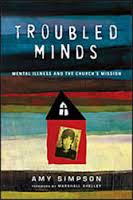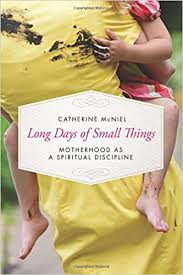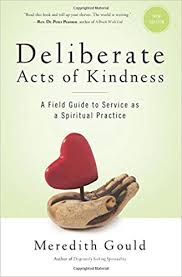 I’ve heard some believers say that mental illness can be reduced to a mind-over-matter issue. “If that depressed person would just apply a little Christian elbow grease by memorizing and applying the Word of God, they’d get over it.”
I’ve heard some believers say that mental illness can be reduced to a mind-over-matter issue. “If that depressed person would just apply a little Christian elbow grease by memorizing and applying the Word of God, they’d get over it.”
I’ve heard other believers insist that mental illness is always a spiritual issue. “It’s demons. End of story.”
I’m glad to say I’ve also known believers who’ve been caring and faithful friends to those suffering from mental illness. There are many more who want to be, but don’t know how.
A new book, Troubled Minds (IVP, 2013) will help many more of us learn to be both friend and advocate for the mentally ill in our families, churches and communities. Author Amy Simpson, whose mother was diagnosed with schizophrenia while Amy was growing up, has penned a guide that includes a sensitive retelling of her family’s story and a helpful discussion for those in the church about issues surrounding mental illness including definitions, categories, and chapters about suffering, coping, church and ministry life, stigma, what churches can do and what God does. A rock-solid resource list rounds out the 221-page book.
Simpson notes that in this era where doctors, counselors and social workers are available to treat those with mental illness, we in the church have an important role to play, too:
“…Why is people’s experience in the church so important? Because God cares deeply about the sick and marginalized. He judged the people of Israel harshly because ‘they deprive the poor of justice and deny the rights of the needy among my people. They prey on widows and take advantage of orphans.’ (Is. 10:2) Who is more needy than people suffering from disorders that distort their perceptions of reality itself?”
She goes on to explain that God used her local church, flawed at times in their response to her struggling family, to be a safe place in her turbulent life while consistently pointing her toward Jesus. Those of us who have mentally-ill family members need safe places to process what is happening in our families; those of us who have been diagnosed with mental illness desperately need people to form a caring network around us. This is simply discipleship, and it requires from those of us supporting the ill person or their family a commitment that can’t be crystallized into a workbook, program or recipe. It means faithfulness through the mess, chaos and confusion of drugs, doctors, hospitals and the consequences of the mentally ill person’s choices.
One of the resources throughout the book toward which Simpson points her readers is the National Alliance on Mental Illness (NAMI). I do want to take a moment to recommend to you this grassroots organization (which has chapters in every state). They offer support and education for the mentally-ill and their families, and are also involved in lobbying efforts. They are a helpful community resource for individuals, but they also have much to offer churches wondering how to better care for the mentally-ill in their midst.
Simpson is a strong, capable writer, and does an excellent job addressing the Christian community about a topic most haven’t known how to best respond. Her experience gives her words authority. Though the book is written primarily to inform and motivate, it is also a love letter to the church she believes can rise up and care well for those who qualify as “the least of these”.
Though Simpson touches on demonic activity as a factor in mental illness, she notes, “Confronting demon possession or demonic influence should not be the starting point for our response to troubled people. If an illness responds to medical intervention, it’s a medical problem. And that should be the starting point.” I would have liked her to elaborate a bit further about when consideration of demonic activity might be of value, and how to proceed without further stigmatizing the person or compromising their treatment.
I believe a copy of this book belongs (dog-eared and underlined) on the shelf of every ministry leader I know, as well as those of us who have mentally-ill family members, or have ourselves been diagnosed with mental illness.
***I received a complimentary copy of this book from the publisher, but the price tag did not in any way affect my review of this book.











